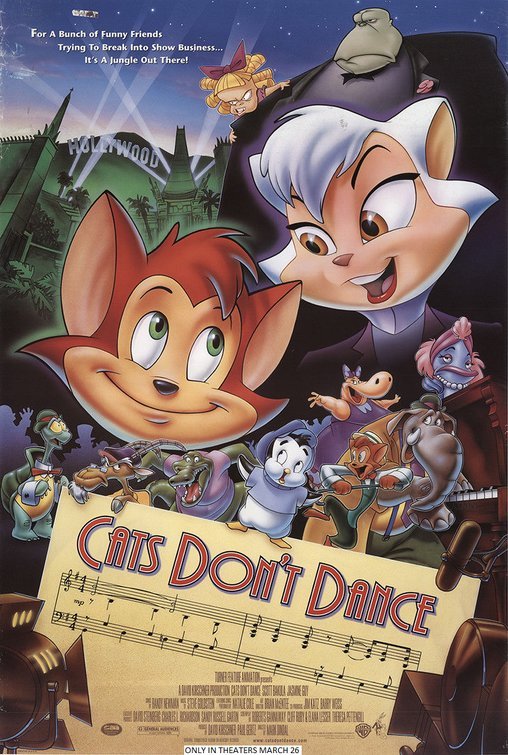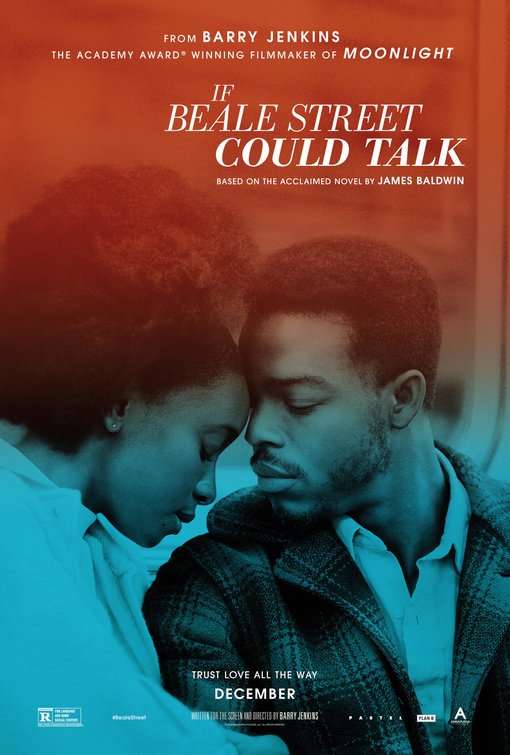“Politically Correct Love Story”

| None | Light | Moderate | Heavy | |
|---|---|---|---|---|
| Language | ||||
| Violence | ||||
| Sex | ||||
| Nudity |
What You Need To Know:
IF BEALE STREET COULD TALK is well acted and photographed. However, it moves slowly and misses the story beats that would make it more compelling. Also, it has a strong Romantic, politically correct leftist worldview with many obscenities and two bedroom scenes. The movie depicts a totally corrupt white society that oppresses black people, who are mostly seen as innocent, sinless victims. This false worldview is mitigated by a few positive references to Christian faith and a prayer to Jesus at a crucial moment in the story. However, the fiancé’s mother in BEALE STREET is a mean, self-righteous Christian woman who uses her faith to condemn people, not help them.
Content:
Strong Romantic, politically correct, even racist, anti-white worldview offers an overbroad attack on the American justice system of the 1970s where all arrests of black men are considered fake/unjust and no one’s really guilty of committing a crime although black men steal from the garment industry in New York to hire lawyer and investigators for one black man who really is innocent (but they’re forced to do it because of the “white man’s” unjust economic and monetary system), a man agrees with Malcolm X’s radical, false Black Muslim views of race relations depicting white people as devils and black people as innocent victims instead of sinners like all other people, and movie leaves out the fact that the Civil Rights Movement was led by Christians and had prominent white people as supporters, the strongest Christian characters are a mean woman and her two daughters who spews hatred using her faith (including invoking the Holy Spirit in an evil way) and curses the baby of her son’s girlfriend to death, but this is mitigated by a prayer to Jesus at a crucial moment in the story and by a few positive but more vague references to Christian faith, including a prayer before a meal, plus the young couple in the movie have a mixed type of Romantic, Christian love that includes a biblical reference to Genesis 2:23;
At least 31 obscenities (including about nine “f” words), zero profanities, and multiple uses of racial slurs;
Brief strong and light violence includes a husband strikes his wife to the floor in anger, man grabs another man harassing a woman and throws him to the ground and kicks him, and man in jail has minor cuts and bruises on his face;
One scene of depicted fornication results in an unwed pregnancy, one scene of implied fornication after unmarried couple kisses in bed, and many of a rape crime and sexual violence but nothing shown;
Upper female nudity during a sex scene, upper male nudity in two sex scenes, woman strips down to her bra and slip in implied fornication scene, and woman is shown giving a water birth, but only shoulders and legs are shown nude;
Characters throughout the movie have casual drinks at home or in a bar, but no examples of drunkenness, though man says they should get drunk in celebration and then leave;
Characters smoke cigarettes regularly throughout the movie set in the 1970s, plus marijuana is mentioned on a couple occasions but never shown; and,
Strong miscellaneous immorality includes lead male character’s father and mother don’t get along because the mother is a mean self-righteous Christian, young man steals tools from his job in a flashback, older man mentions that stealing and robbing was the only way he was able to support his family because of racist white society, working men rob from garment district to pay for another man’s lawyer trying to prove man’s innocence (man really is innocent), lawyer cites corruption among prosecutors in innocent man’s case, the only individual white police office character depicted in the movie is a racist who makes a false arrest, and real-life photos of other white police officers are used to indict all arrests of black men as purely racist.
More Detail:
IF BEALE STREET COULD TALK takes place in Harlem, New York in the 1970s. Tish and Fonny have known each other since they were children, playing together, bathing together and growing together. The love they have for each other eventually transforms into deep, passionate feelings.
Just when they realize they will spend the rest of their lives loving each other, disaster strikes. One night when Tish and Fonny are home catching up with an old friend, Fonny is accused of raping a Hispanic woman many blocks away. Basic logic and their truthful alibis would easily convince the police and a jury of his innocence, but in this time and place, that doesn’t matter.
With a dominantly white police force, who are portrayed as racist oppressors, Fonny finds himself the victim of hatred. However, it becomes even more complicated when Tish realizes she’s pregnant. Her family celebrate with her and Fonny at this news, but Fonny’s mean, self-righteous Christian mother and two sisters don’t have the same reaction. In fact, his father hits the mother when she curses Tish and her unborn baby.
Tish’s family begins work immediately trying to figure out a way to prove his innocence and free him from this injustice. They find a lawyer willing to take the case. Tish’s mother makes a trip all the way to Puerto Rico to find the woman who accused him and convince her to change her testimony to the truth. Meanwhile, their lawyer finds out that prosecutors have corruptly manipulated the case against Fonny despite his alibi. With all the elements against them, Tish and Fonny have to hold on to their love and try to look forward to a better day ahead of them.
Directed by Barry Jenkins of the Oscar winning homosexual movie MOONLIGHT, IF BEALE STREET COULD TALK is well acted and photographed. However, it moves slowly and misses the story beats that would make it more compelling and entertaining. Also, it has a strong Romantic, politically correct leftist worldview with many obscenities and two bedroom scenes. The movie depicts a totally corrupt white society that oppresses black people, who are mostly seen as innocent, sinless victims. One character even quotes Malcolm X’s heretical, racist Black Muslim attitude toward white people, but the movie never mentions the Christian leaders who led the Civil Rights Movement to many victories in the Sixties. This false worldview is mitigated by a couple positive references to Christian faith and a prayer to Jesus at a crucial moment in the story. However, the fiancé’s mother in BEALE STREET is a mean, self-righteous Christian woman who uses her faith to condemn people, not help them. Also, Fonny and Tish never really turn to Jesus for help with their predicament.


 - Content:
- Content: 

